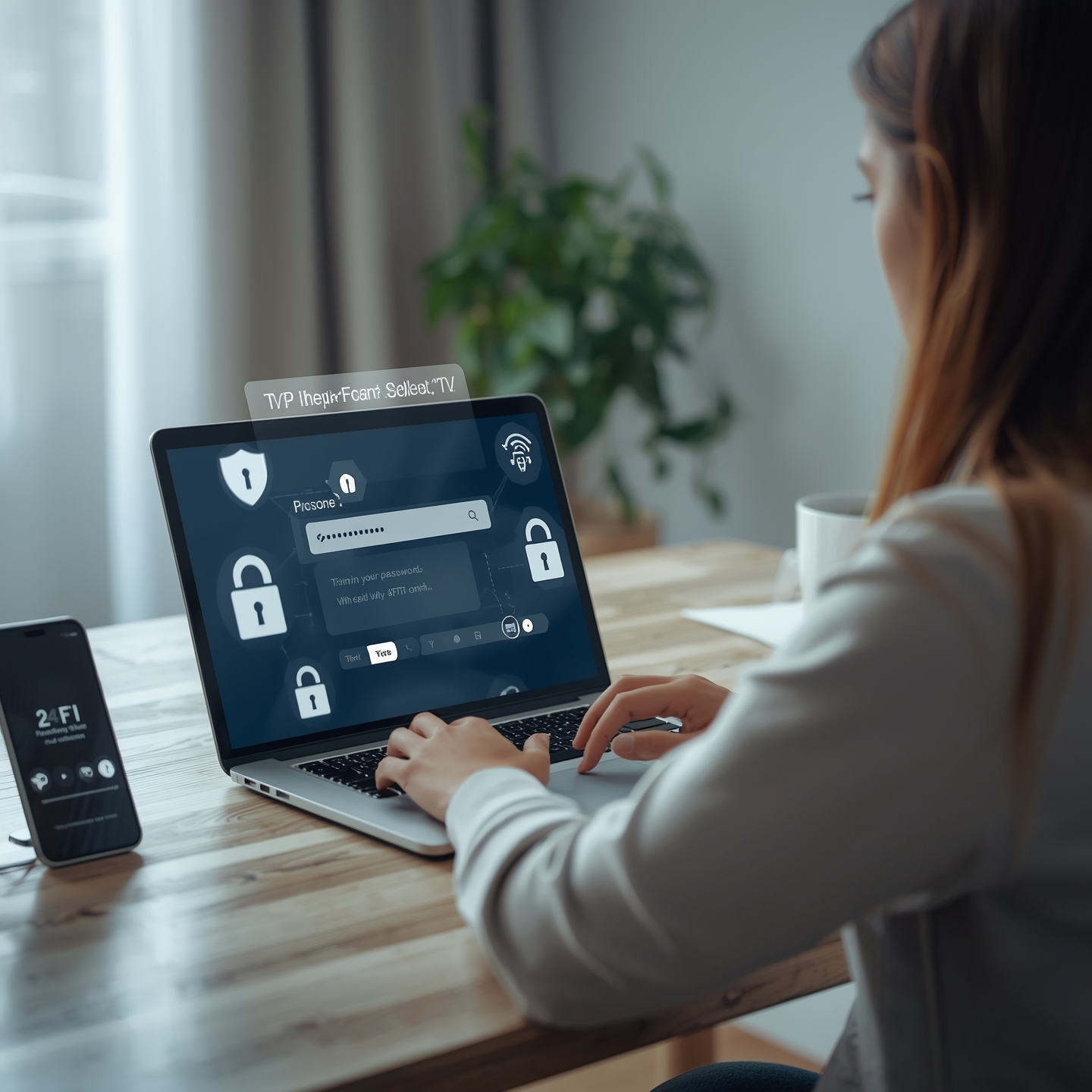
In today’s digital world, the internet is a part of almost everything we do—from online shopping to banking, schoolwork, and even socializing. While the web offers countless opportunities, it also comes with its fair share of risks. Cybercriminals are getting smarter, and they can target anyone. That’s why it’s more important than ever to follow solid internet safety tips to protect yourself and your personal data.
This article breaks down the most effective and easy-to-follow internet safety practices, so you can stay safe, informed, and one step ahead online.
1. Create Strong, Unique Passwords
Many people use the same password for every account. This makes it easier for hackers to access multiple services if one password is leaked. A strong password should:
- Include uppercase and lowercase letters, numbers, and symbols
- Be at least 12 characters long
- Not use common words, names, or dates
Use a password manager like Bitwarden or LastPass to generate and store strong passwords.
Tip: Avoid using “123456,” “password,” or your birthday.
2. Turn on Two-Factor Authentication (2FA)
Even the strongest passwords can be cracked. That’s why two-factor authentication is important. It adds an extra layer of security by requiring you to enter a code sent to your phone or email.
Most popular services like Gmail, Facebook, and Instagram support 2FA.
Learn how to turn on 2FA at CISA.gov.
3. Beware of Phishing Emails and Texts
Phishing is when cybercriminals pretend to be someone else to trick you into giving away personal information.
Common signs of phishing:
- Misspelled words
- Urgent requests like “Your account will be closed”
- Unusual email addresses
- Suspicious links or attachments
If something looks off, don’t click. Always go directly to the official website instead of following links.
Visit FTC.gov for tips on how to spot and avoid phishing scams.
4. Keep Your Software Updated
Your phone, computer, and apps should always have the latest updates installed. Updates often fix security holes that hackers can use to attack your device.
Turn on automatic updates for:
- Operating systems (Windows, macOS, iOS, Android)
- Browsers (Chrome, Firefox, Safari)
- Apps (especially email and messaging apps)
The U.S. Cybersecurity & Infrastructure Security Agency (CISA) urges regular updates to prevent exploitation. See their official guidance.
5. Use Secure Wi-Fi and a VPN
Using public Wi-Fi in places like cafes or airports can expose your data. Hackers can easily intercept your connection if it’s not secure.
To stay safe:
- Avoid entering sensitive info like credit cards on public Wi-Fi
- Use a VPN (Virtual Private Network) to encrypt your traffic
- Always log out when finished
Check out the FCC’s guide to Wi-Fi safety.
6. Be Cautious on Social Media
Oversharing on platforms like Instagram or Facebook can give criminals enough information to guess passwords or plan scams.
Avoid sharing:
- Your location in real-time
- Your home address
- Vacation dates
- Personal info like your mother’s maiden name or first pet
Learn about online privacy best practices at USA.gov.
7. Think Before You Click
Clicking unknown links can lead to viruses, spyware, or phishing websites. If you get a suspicious email or pop-up:
- Don’t click
- Hover over the link to see the actual web address
- Use link scanners like Google Safe Browsing to check for danger
Clicking the wrong link could download malware or ransomware onto your device.
8. Back Up Your Data
Cyberattacks, hardware failure, or even accidental deletion can result in data loss. Having a backup means you won’t lose important files forever.
Use:
- External hard drives
- Cloud storage (Google Drive, Dropbox)
- Automatic backup tools
Visit Ready.gov for government-recommended data backup strategies.
9. Use Antivirus and Anti-Malware Tools
Having antivirus software is like having a security guard on your computer. It scans for dangerous software and removes it before it causes damage.
Popular tools include:
- Windows Defender (built-in)
- Norton
- Malwarebytes
Make sure your antivirus software is always updated.
Read more from Cybersecurity & Infrastructure Security Agency.
10. Educate Your Family
Children and older adults are often targeted by online scammers because they may not understand the risks.
Teach them about:
- Not talking to strangers online
- Safe passwords
- Recognizing fake messages
- Never clicking unknown links
The U.S. government offers family-friendly safety resources at Stop.Think.Connect.
11. Be Wary of Free Downloads
Free apps, games, or music downloads may contain malware. Only download from official app stores or trusted websites.
Signs of a dangerous download:
- Pop-ups asking for strange permissions
- Apps not listed in the Google Play or Apple Store
- Unusual reviews or zero-star ratings
12. Check Website URLs Before Entering Info
Before you submit sensitive information like credit card numbers, check:
- The website begins with https:// (the “s” means secure)
- There’s a padlock icon next to the address bar
- The domain name is correct and not a misspelling
Learn more at FTC’s online shopping safety guide.
13. Avoid Unsecured Apps or Extensions
Browser extensions and apps can sometimes spy on you or steal your data. Only install those with good reviews and clear privacy policies.
Delete or disable apps you don’t use anymore.
14. Report Suspicious Activity
If you come across scams, phishing attempts, or cyberbullying, report them.
You can report:
- Scams to ReportFraud.ftc.gov
- Identity theft to IdentityTheft.gov
- Cybercrime to the FBI’s Internet Crime Complaint Center (IC3)
Reporting helps keep everyone safer online.
Final Thoughts about Internet Safety Tips
The internet can be a wonderful place to learn, connect, and explore—but only if you use it wisely. These internet safety tips are simple steps that can make a huge difference. Whether you’re browsing the web, sharing on social media, or doing online banking, practicing safe habits will protect you from threats.
Remember: cybercriminals count on people being careless. Don’t give them the opportunity. Make security a habit—not just an option.
Quick Recap for Internet Safety Tips
- Use strong, unique passwords
- Turn on two-factor authentication
- Watch out for phishing scams
- Keep your devices and apps updated
- Avoid public Wi-Fi or use a VPN
- Don’t overshare on social media
- Be cautious before clicking links
- Back up important files
- Use antivirus software
- Educate your family
- Download only from trusted sources
- Check for HTTPS on websites
- Be careful with browser extensions
- Report scams and threats
READ MORE: Current Today News









4 comments on “Top Internet Safety Tips You Should Know”